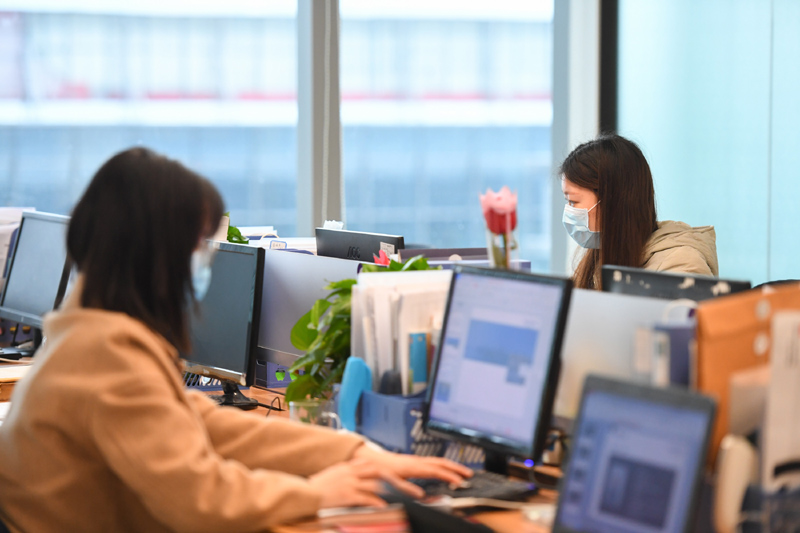China is experiencing a post-COVID-19 recovery. As economies reopen, some working mothers have to look after both their jobs and children. After being away from public life for a while, home has become office, school, daycare center and entertainment room. And mothers have to choose between becoming super women and dropping a few responsibilities.

In many Chinese families, working mothers bear heavier pressure as remote classes and schooling become a new normal. /VCG
In many Chinese families, working mothers bear heavier pressure as remote classes and schooling become a new normal. /VCG
Even though China is among countries that have contained the coronavirus effectively, it still saw resurges in some places.
In the summer of 2020, Liaoning, Xinjiang and other places went under lockdowns again due to a spike in coronavirus cases. With no end in sight, Chinese mothers now face a dilemma: they need be back at work to hold onto their jobs, but their children have to stay at home as schools remain closed.
A dilemma
Though schools and nurseries across China began to gradually reopen from May, a large proportion of preschool and school-age children remain at home, in the care of their parents, who may also be working.
Schooling and looking after children at home place a heavy burden on families who are also weathering the economic impact of the COVID-19 pandemic. In many Chinese families, working moms have to bear heavier pressure as remote classes and schooling become a new normal.
"School-age kids cannot independently take care of their own life and studies. Especially during COVID-19, they need more companies and comfort from parents," said Qian Yi, a 41-year-old working mom. Her son was supposed to return to school, but due to the resurgence of coronavirus, the boy has to do cloud learning instead.
"Me and my husband take a rotating shift to accompany our kid. We try not to leave him home alone."

How to look after school-age children is crucial for not only working mothers, but the whole society. /VCG
How to look after school-age children is crucial for not only working mothers, but the whole society. /VCG
To keep children from staying alone at home out of safety concerns, some parents choose to work from home and ask their grandparents for a helping hand. "Even if you can work at home, it's not feasible for the long run," said Chen Binbin, a working mother.
"Housework, nursing children, and work, it can all drive you insane. Given our home is not spacious, the noise can easily disturb me during work," Chen said.
Scientists found one-third of the working mothers in two-parent households reported they were the only ones providing care for their children, compared to one-tenth of working fathers. When people work virtually, they spend longer time staying online, blurring the line between private life and work. Furthermore, mothers are forced to stay up late or get up early to handle work, so they can spare more time providing care at home.
This sometimes leads to physical fatigue and mental desperation.
"I yelled at my kid several times because I feel sorry for not giving her quality time. Meanwhile, I still want to focus more on my job. You know, being professional," said Zhang Ningning, who returned to work several years ago from being a full-time homemaker.

In Beijing, there are policies to help working parents to stay at home to take care of kids while still getting paid. /Xinhua
In Beijing, there are policies to help working parents to stay at home to take care of kids while still getting paid. /Xinhua
Changes needed
This is no doubt an unprecedented time. Looking after school-age children is crucial for not only working moms, but the whole society. In Beijing, there are policies to help working parents, where they are able to stay home and take care of their children while still getting paid. In Shandong Province, it's illegal to lay off employees who stay home for their children during the pandemic.
In the private sector, some companies have introduced regulations for those who have to work from home, such as flexible working hours, annual-leave adjustment and transportation compensation.
Considering most paid employees with practical difficulties are working moms, more people are calling for long-lasting changes such as lower taxes, promoting reforms, and rearranging household responsibilities, among other things.
"The luck of a grandparent who can swoop in or the deep pockets for a full-time nanny is not enough. We don't want to be defined by a pandemic, but we know what we bear," said Chen.
(With input from agencies)